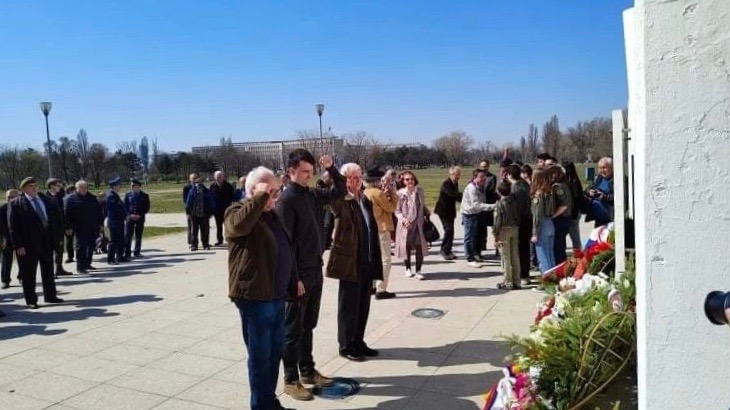On Thursday, March 24, left-wing sections in Serbia paid tributes to the victims of NATO bombings in the former Federal Republic of Yugoslavia. Thursday marked the 23rd anniversary of the start of the 78-days-long NATO bombing campaign in erstwhile Yugoslavia between March 24 to June 10, 1999, which caused the death of around 2,000 people, along with massive destruction of property and infrastructure.
Representatives from various political parties including the New Communist Party of Yugoslavia (NKPJ), League of Communist Youth of Yugoslavia (SKOJ), Party of Radical Left (PRL), Socialist Party of Serbia, and the Serbian Left laid wreaths at the monument of Eternal Fire in Belgrade and denounced the NATO invasion of Yugoslavia.
NATO intervened in the ethnic conflict in Yugoslavia on March 24, 1999, under the pretext of protecting Kosovo from Serbian forces. The ethnic conflict in Serbia started in the late 1990s between the government led by Slobodan Milosevic and the Kosovo Liberation Army (KLA). It resulted in large-scale violence, displacement, and loss of lives and property. The NATO forces had conducted massive airstrikes to smash the Yugoslav forces. The war ended with the Kumanovo Treaty between the International Security Forces (KFOR) and the Federal Republic of Yugoslavia on June 9, 1999, whereby the Yugoslav-Serbian forces agreed to a phased withdrawal from Kosovo to make way for international civilian and security presence there under the auspices of the United Nations (UN).
The UN formed the International Criminal Tribunal for the former Yugoslavia (ICTY) in 1993 as an ad hoc international court to try the perpetrators of crimes against humanity during the Yugoslav wars that started in 1991. Many accused the ICTY of being biased as it only looked into cases of war crimes committed by the Serbian leadership of former Yugoslavia, while disregarding those committed by western forces under NATO leadership.
On March 24, the PRL stated that the NATO attack on the Federal Republic of Yugoslavia, carried out in gross violation of international law, marked a new era of Euro-Atlantic imperialism, which, under the guise of democracy and human rights, destroys countries and kills people all over the world.
PRL accused that the US-EU led bloc is now pressuring Serbia to join the European sanctions against Russia, contrary to the vital interests of its population. “We would like to remind that Serbia has previously harmonized its foreign policy with the EU by imposing sanctions on Syria and Belarus and thus actually joined the hybrid war and the attempt to change the regime in these countries.”
PRL demanded the Serbian government to maintain military neutrality of the country and oppose sanctions as a way of conducting war as they can sometimes be just as deadly as war operations.





